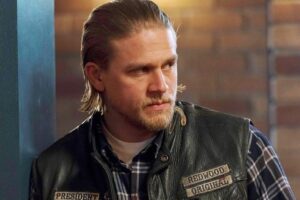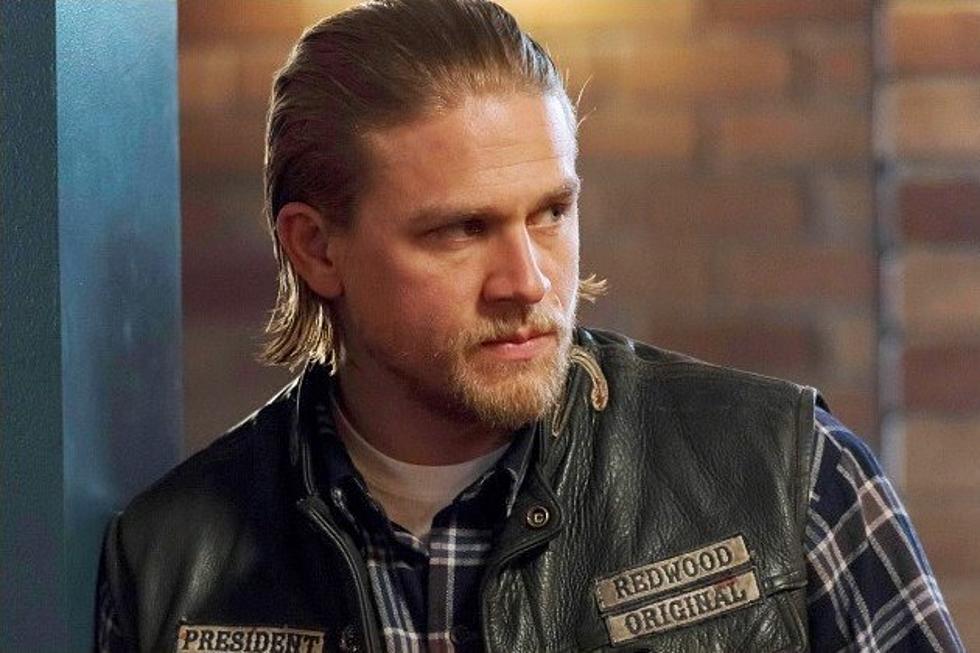How Charlie Hunnam Got into Acting

(Charlie Hunnam in Sons of Anarchy)
Charlie Hunnam, known for his intense performances in Sons of Anarchy, Pacific Rim, and King Arthur: Legend of the Sword, has carved out a unique space in Hollywood. With his rugged charisma and commitment to authenticity, Hunnam has become a standout talent in the industry. However, his journey into acting was far from conventional, involving chance encounters and a leap of faith.
A Humble Beginning
Born in Newcastle, England, in 1980, Charlie Hunnam grew up in a working-class family. His father, Billy, was a scrap metal merchant, and his mother, Jane, worked in the arts as a business owner. Hunnam’s upbringing in northern England was shaped by resilience and a creative environment.
“I grew up in a pretty rough neighborhood, but my mom always encouraged us to dream big,” Hunnam said in an interview. “She believed in the power of storytelling, which I think planted the seed for me.”
Despite his natural flair for drama, Hunnam didn’t initially see acting as a viable career.
A Fortuitous Encounter
Hunnam’s journey into acting began unexpectedly when he was discovered at the age of 17. While shopping for shoes in a local store on Christmas Eve, Hunnam caught the eye of a production manager from the British teen series Byker Grove.
“I was messing around, doing silly voices, and someone came up to me and said, ‘You should audition for this show,’” Hunnam recalled. “At the time, I thought they were joking, but I figured, why not give it a shot?”
That chance encounter led to a role on Byker Grove, marking Hunnam’s first experience in front of the camera. Though it was a small part, it ignited a passion for acting that he hadn’t realized he had.
Deciding to Pursue Acting
After his stint on Byker Grove, Hunnam decided to take acting more seriously. He enrolled at the Cumbria College of Art and Design to study performing arts, focusing on both acting and filmmaking.
“I wanted to understand every aspect of storytelling,” he said. “I figured if I couldn’t make it as an actor, I’d try directing or writing.”
Hunnam’s dedication paid off when he landed his first major role as Nathan Maloney in the groundbreaking British series Queer as Folk. The show, which explored LGBTQ+ themes, pushed boundaries and brought Hunnam critical acclaim.
“Queer as Folk was a turning point for me,” Hunnam shared. “It was a bold, unapologetic show, and being part of it taught me the importance of taking risks as an actor.”
Breaking into Hollywood
After the success of Queer as Folk, Hunnam set his sights on Hollywood. In the early 2000s, he moved to Los Angeles, where he faced the challenges of starting over in a new industry.
“Breaking into Hollywood wasn’t easy,” Hunnam admitted. “I went through a lot of auditions, and there were times when I wondered if I’d made the right choice.”
His perseverance paid off when he landed roles in films like Nicholas Nickleby and Cold Mountain. While these roles helped him gain recognition, it was his casting as Jax Teller in the hit FX series Sons of Anarchy that made him a star.
“Sons of Anarchy changed my life,” Hunnam said. “Jax was such a complex character, and playing him was both a challenge and a privilege. It taught me so much about myself as an actor and as a person.”
A Relentless Commitment to Craft
Hunnam is known for his immersive approach to acting, often diving deep into the physical and emotional demands of his roles. Whether it’s undergoing intense training for King Arthur: Legend of the Sword or embracing the grit of the post-apocalyptic world in Pacific Rim, Hunnam brings a relentless commitment to every project.
“For me, acting is about honesty,” he explained. “It’s about finding the truth in a character and bringing that to life in a way that resonates with people.”
Staying Grounded
Despite his Hollywood success, Hunnam remains grounded and reflective about his journey. He credits his upbringing in Newcastle and the lessons he learned early in his career for keeping him humble.
“I’ve been incredibly lucky, but I’ve also worked hard for every opportunity,” Hunnam said. “At the end of the day, it’s about staying true to who you are and never forgetting where you came from.”
Hunnam also stays connected to his creative roots by exploring other aspects of filmmaking, including screenwriting. “I’ve always been interested in storytelling, whether it’s in front of the camera or behind it,” he said.
Conclusion
Charlie Hunnam’s path into acting is a story of serendipity, passion, and perseverance. From his chance discovery in a shoe store to his rise as one of Hollywood’s most compelling leading men, Hunnam has proven that talent and determination can overcome even the most unconventional beginnings.
As Hunnam once said: “Acting is a lifelong journey. You’re constantly learning, growing, and finding new ways to tell stories. That’s what makes it so rewarding.”




